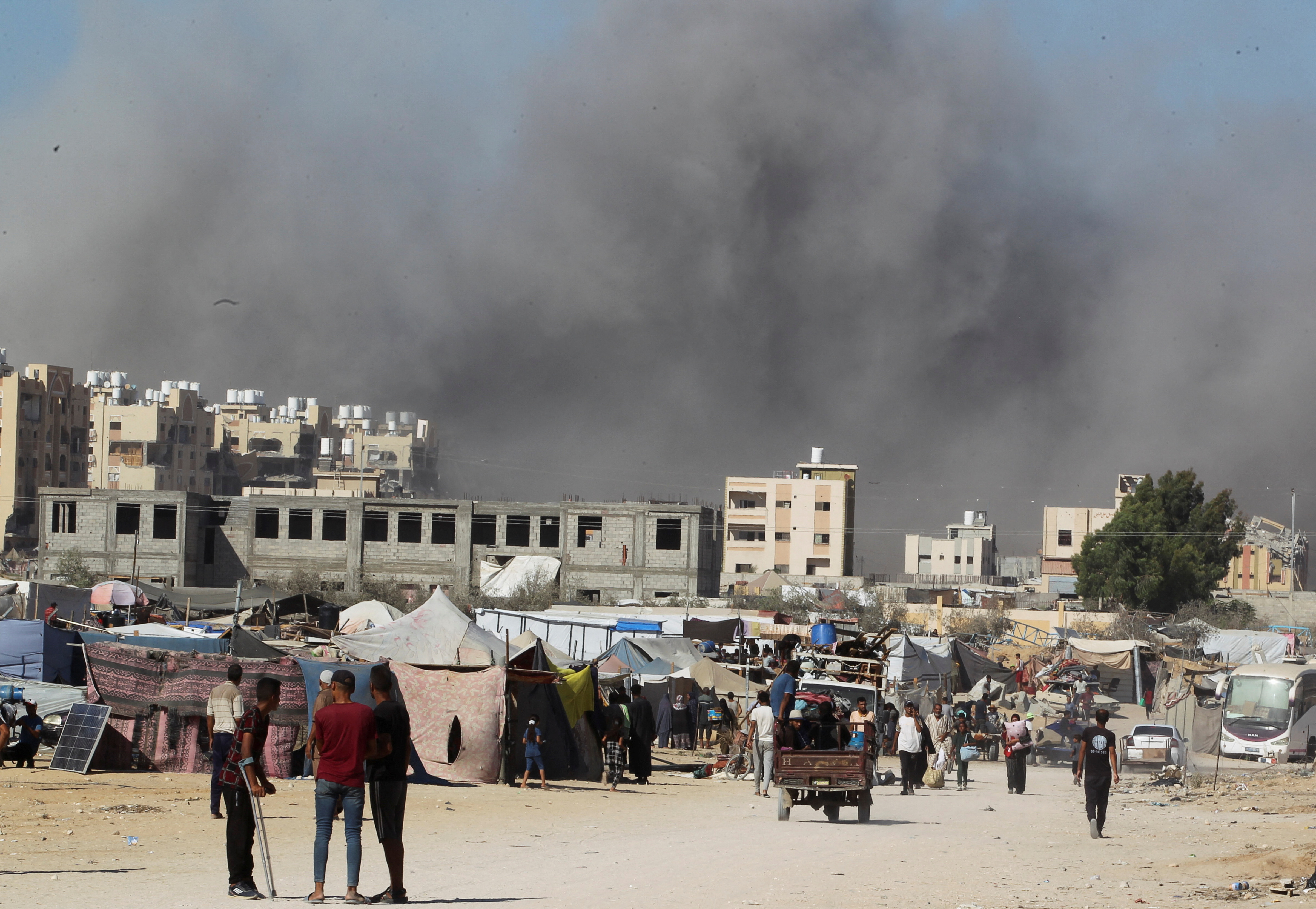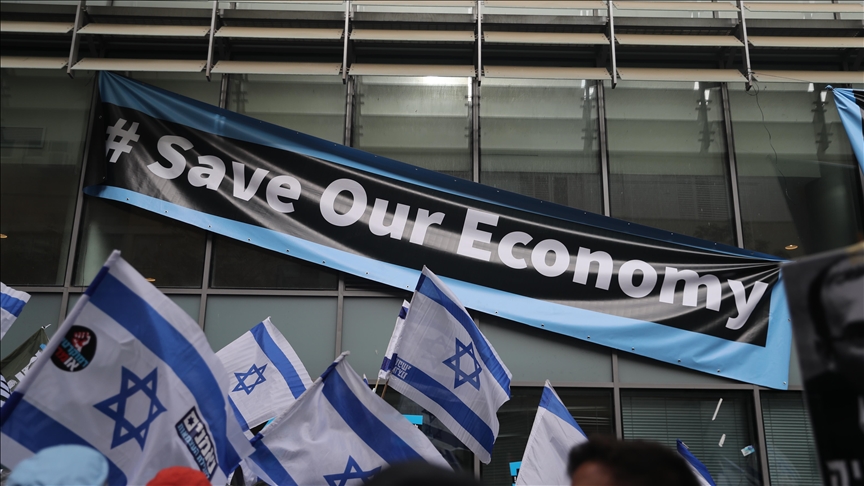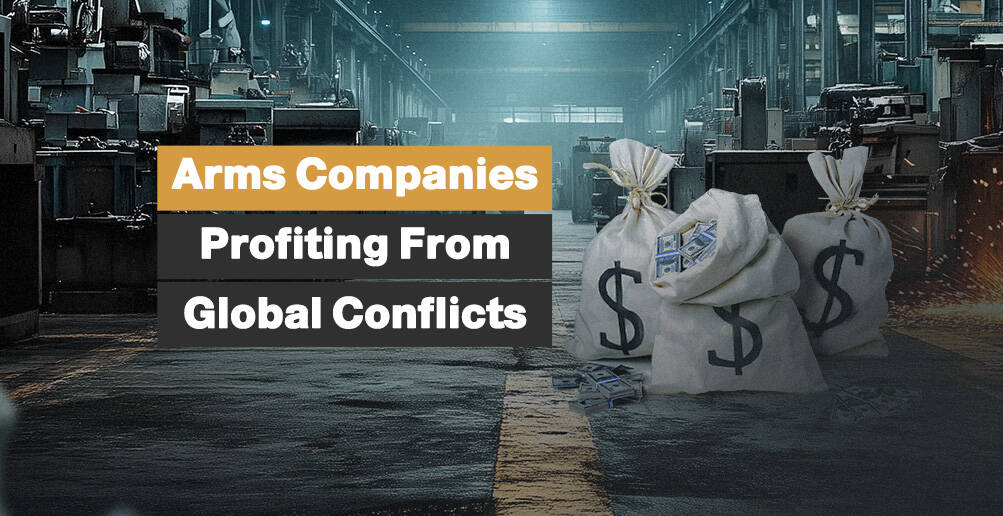Will the Wave of Foreign Investment Withdrawals from 'Israel' Continue?

The flow of foreign investment into the Israeli companies has slowed dramatically
Tel Aviv has long prided itself on being the startup capital and the "Silicon Valley" of the Middle East.
However, the flow of foreign capital and investment into the city’s companies and assets has slowed dramatically.
Economic Repercussions
The Israeli aggression on Gaza has extended beyond the battlefield, striking at the core of the Israeli economy in an unprecedented manner.
This economic turmoil has also impacted local businesses, with a staggering 80% of Israeli startups opting to incorporate in Delaware, United States.
Even before the outbreak of the war, foreign investment in the Israeli occupation had already plummeted by 60% in the first quarter of 2023.
As local and international investments continue to withdraw, the once-ambitious dreams of economic prosperity in the Israeli occupation have dimmed, replaced by mounting concerns about the country’s capacity to navigate these escalating challenges.
The Israeli occupation’s appeal as an investment destination is under intense scrutiny. The exodus of companies, sovereign wealth funds, and banks from the Israeli market raises genuine questions about the nation’s future economic resilience.
Since the beginning of the Israeli aggression on Gaza on October 7, 2023, the Israeli occupation has experienced an unprecedented wave of capital flight.
Major corporations and sovereign funds have swiftly exited the Israeli market, making decisive moves that underscore the gravity of the situation.
Norway's Sovereign Wealth Fund has completely divested from the Israeli occupation, citing "serious uncertainty" in the market. Likewise, Danske Bank (Danish Pension Fund) has withdrawn all investments from Israeli banks.
The British Pension Funds have faced significant pressure to divest from companies supplying arms to the Israeli occupation. The UK Universities Pension Scheme (USS), over the past six months, has reduced its exposure to Israeli government debt and the shekel.
In the same vein, the Irish National Treasury Management Agency has divested approximately €3 million from its global equity portfolio in the Irish Strategic Investment Fund, specifically from six Israeli entities: Bank Hapoalim, Bank Leumi, Israel Discount Bank, Bank Mizrahi-Tefahot, First International Bank, and Rami Levy Chain Stores.
The British bank Barclays has abruptly withdrawn from participating in Israeli government bond auctions, succumbing to pressure from activists opposing the Israeli actions in Gaza. HSBC has also significantly scaled back its investments in Israel, warning of increasing instability in the market.

Crucial Reasons
These developments are a stark indicator of the growing economic and political challenges Israel faces, as both local and global investors reassess their ties to the country amidst ongoing conflict and uncertainty.
The reasons behind the exodus of investments are becoming increasingly clear, with several key factors playing pivotal roles in reshaping the country's economic landscape.
Political researcher Tariq Bodyafa says that the main reason is the Israeli aggression on Gaza, which profoundly impacted the Israeli economy, extending far beyond the battlefield to erode investor confidence.
The severe human and material toll, coupled with massive military expenditures, has created an atmosphere of uncertainty. This has driven investors to seek safer markets, away from the instability currently plaguing Israel, according to Bodyafa.
“The rise of international boycott campaigns, specifically the Boycott, Divestment, and Sanctions (BDS) movement has gained significant traction, successfully influenced global public opinion, and applied pressure on companies and financial institutions,” Bodyafa told Al-Estiklal.
“This growing moral and economic pressure has led many investors to reevaluate their ties with Israel, concerned about potential reputational damage and the broader implications for their businesses,” he added.
Moreover, the Israeli occupation’s internal political landscape has become increasingly fractured, particularly in light of contentious judicial reforms that have sparked sharp divisions. “This internal strife has undermined investor confidence, raising doubts about Israel's ability to maintain a stable and predictable business environment,” Bodyafa added.
He also pointed out the erosion of competitive advantage in the tech sector, as Israel's once-dominant position in the technology sector is now under threat as talent and companies seek more stable environments.
This talent drain, coupled with the broader economic and political uncertainties, is eroding the competitive edge that has long been a cornerstone of Israel's economic success.
“Together, these factors paint a stark picture of an economy under siege, with investors increasingly looking elsewhere as Israel grapples with challenges that threaten its long-term stability and growth,” Bodyafa concluded.

Uncertain Future
The Israeli economy contracted by a staggering 19.4% in the fourth quarter of 2023, a sharp decline that vividly illustrates the toll the Gaza conflict has taken on every sector.
Private consumption plummeted by 27%, while public consumption saw an extraordinary reduction of 90%.
Meanwhile, public spending surged by 7.1% in the first quarter of 2024, following an unprecedented 86% increase in the final quarter of 2023, driven largely by defense expenditures.
Investment activity has collapsed by 70%, exacerbating the economic downturn. The Tel Aviv 35 index has also suffered, dropping more than 20% since the onset of the war, while the Israeli shekel’s decline in value has further strained the economy by raising import costs and stoking inflation.
Looking ahead, the picture remains uncertain. GDP per capita has fallen by 3.1% year-on-year, and overall economic growth has slowed to 2% in 2023, down from 6.5% in 2022, with per capita growth dipping into negative territory at -0.1%.
The decline in foreign investment poses a particular threat to vital sectors, notably technology, which has long been a cornerstone of Israel’s economic prowess.
The erosion of Israel’s competitive edge in the global innovation market, driven by a growing brain drain, is a troubling sign of long-term vulnerability.
As Israel’s credit rating deteriorates, the cost of borrowing is set to rise, further straining the economy.
There is a looming possibility of a profound structural shift within the Israeli economy, as sectors reliant on foreign investment may shrink, fundamentally altering the country’s economic landscape.
A continued decline in foreign investment, potentially dropping by 70-80% by year’s end compared to pre-war levels, could deepen the Israeli occupation’s economic crisis.
The tourism sector, a vital part of the economy, may see losses exceeding 90% of its revenues, devastating jobs and income.
Unemployment could skyrocket, particularly in vulnerable sectors like technology, tourism, and services.
The economy could contract by more than 10% annually, plunging Israel into a deep recession. The shekel may sharply depreciate, raising import costs and fueling inflation, while a steep decline in consumption and investment could lead to a deflationary spiral that is difficult to reverse.










